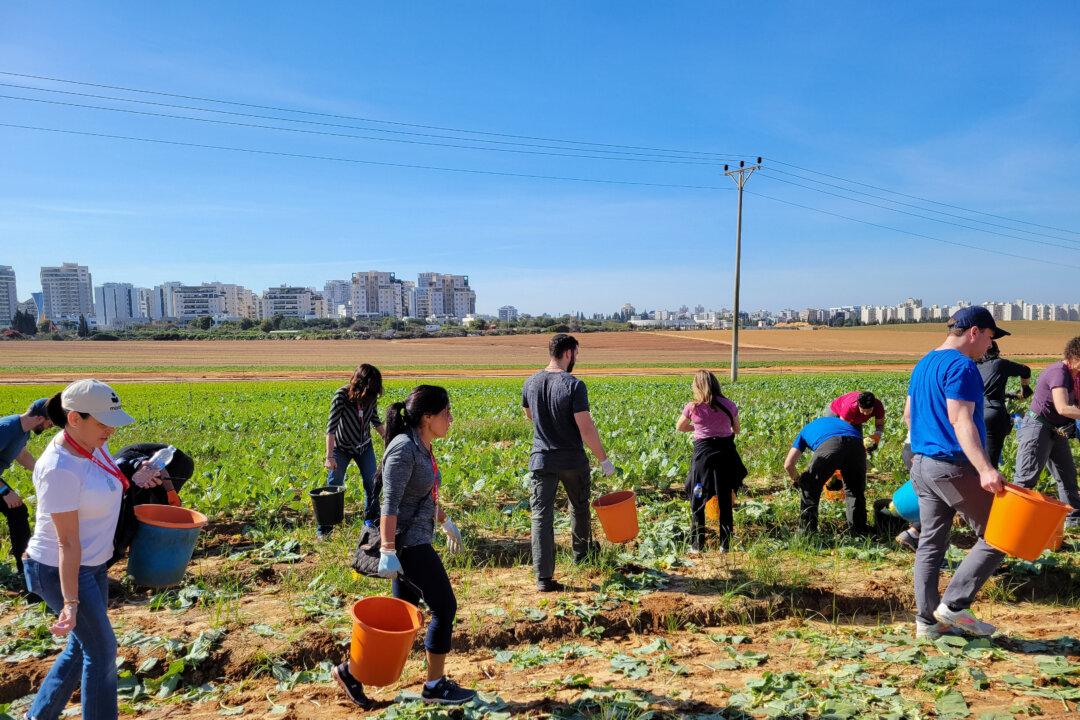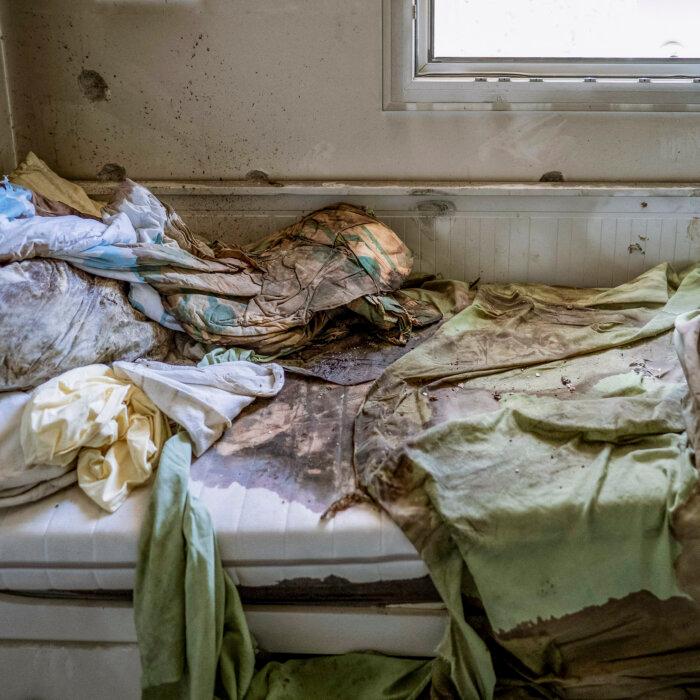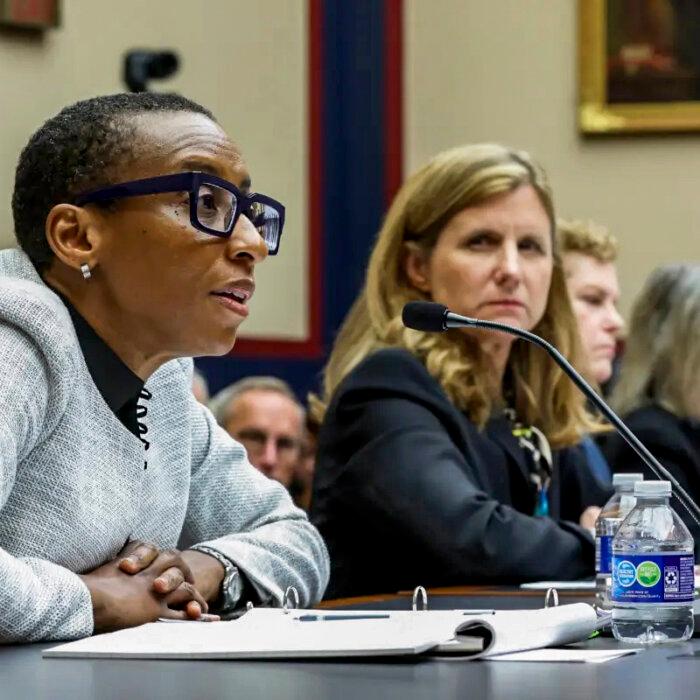When Justine Cohen travels to Israel to visit relatives, she usually gets a shopping list of things they'd like her to bring with her from the United States.
She got a different reaction this time when she told them she and her daughter would be coming in March on a trip sponsored by the Jewish National Fund.
They said her travel plan was a welcome piece of good news, she told The Epoch Times. “They need to have something to look forward to as the situation in Israel is so volatile and uncertain,” she said.
“When we visit Israel, they usually give us a list of items to bring from the United States. This time they just said to come.”
That’s what most Israelis seem to want right now, with the nation at war and still reeling from the Oct. 7 attack and massacre by the terrorist group Hamas.
They feel abandoned—like no one hears their side of the story, or cares about what they’re going through. They want people to come and visit, she said.
Lots of people are.
Jewish organizations are mounting trips to Israel, and these aren’t about tourism.
Participants visit the country and volunteer in an economy that is strapped for labor with hundreds of thousands of reservists now in uniform. They pack food to ship to soldiers or to Israelis who were displaced from their homes on Oct. 7.
They work in the fields, harvesting fruit and vegetables, replacing reservists or foreign farm workers who have left the country.
They visit families of hostages. They meet soldiers on leave. They go to Hostage Square in Tel Aviv, where commemorative exhibits have been posted to more than 100 Israelis still held hostage by Hamas somewhere in war-torn Gaza.
They meet some of the displaced people, many now living temporarily in hotels or apartments. They do craft projects with the children.
They visit places devastated on Oct. 7—burned out kibbutzes and moshavs and the site of the Nova music festival where terrorists murdered, raped, kidnapped, and burned. They hear from speakers who survived the attack: police officers, soldiers, festivalgoers.
They get instructions on how to tell Israel’s story when they return home. They keep in touch with each other and with some of the Israelis they meet.
“My friend jokingly coined it Extreme Zionist Friend-Making Camp,” Jenny Judenberg, a young Atlanta electrical engineer who spent two weeks over the holidays working on a farm, told The Epoch Times.
The trip was organized by Birthright Onward, an organization that, in more peaceful times, sends young Jews on trips to Israel and sets up internships for them to work there.
Now it’s organizing them to provide labor where they can.
The visitors also benefit from these trips.
Since Oct. 7, Ms. Judenberg said, she’s had to be careful what she says and to whom about Israel. Her Intown Atlanta neighborhood has been the site of anti-Israel demonstrations, rallies, and graffiti in sight of her apartment.
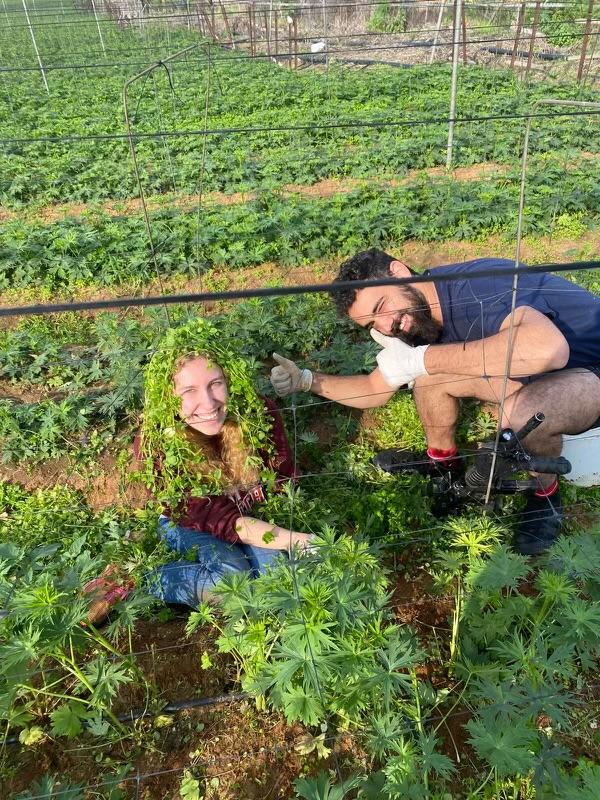
She’s seen disturbing posts on social media from people she said she “once considered friends.”
Here, she was among friends.
“We’re saying all the things we couldn’t say out loud in America. We’re just screaming them at the top of our lungs,” she said.
Beth Arogeti, chairwoman of the Jewish Federation of Greater Atlanta, said she went on a weeklong January trip because she needed to recharge.
The federation, the umbrella group raising and distributing money for local synagogues, Jewish schools, and other Jewish institutions in the metro area, had gone into 24/7 fundraising mode on Oct. 7.
They raised $12.3 million in eight weeks, she said, part of more than $775 million that Jewish federations in North America raised for Israel from Oct. 8 to Jan. 29.
The money goes toward housing and relocating Israel’s displaced people and other crises caused by the attack and the ensuing war in Gaza with Hamas.
Not all the money has been spent, she said. Some has been reserved for problems looming after the war.
Israel will have to treat the PTSD suffered by attack victims, IDF soldiers, and their families. And it will have to meet the needs of returning hostages as they deal with issues of deprivation and even rape suffered during their captivity.
Ms. Arogeti said she’s heard that some of the hostages still being held were raped and are now pregnant. Plus at least 32 pregnant Israelis are war widows, carrying children who will never meet their fathers.
The unrelenting work and stress took a toll on her, Ms. Arogeti said.
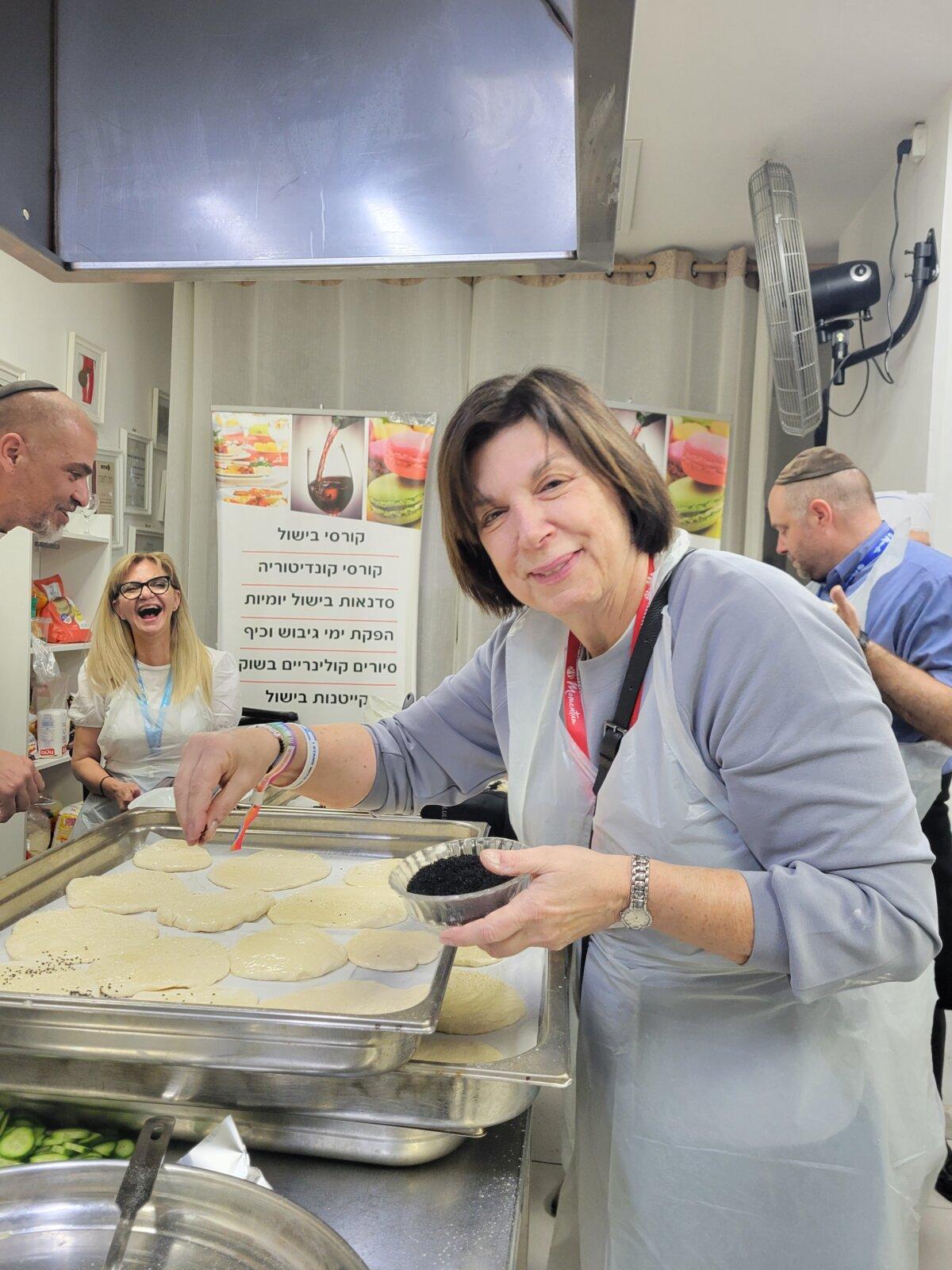
“My cup was becoming low. I had been fundraising since Oct. 8. And I just needed for my cup to be filled up,” she said.
“What was so surprising and rewarding for me was seeing how we help Israeli moms and dads. Having them know we were with them, was very fulfilling to me.
“I didn’t think that was going to be a big part of it. It definitely was. They thought the people in the diaspora [Jews who don’t live in Israel] had already forgotten about Oct. 7. And it was good for them to see us so engaged, and vice versa,” Ms. Arogeti said.
“I went to Israel to bear witness and stand in solidarity with the Israelis. During these unimaginable times, we witnessed people—they’re our brothers and sisters. And what they’re going through will forever be etched in my mind.”
Her group visited Kfar Aza, one of the kibbutzes hit hardest on Oct. 7.
At least 52 of its more than 700 residents were killed, and more than 20 went missing. The attack was notable for its brutality.
Emergency workers later reported finding numerous bodies beheaded, dismembered, or burned.
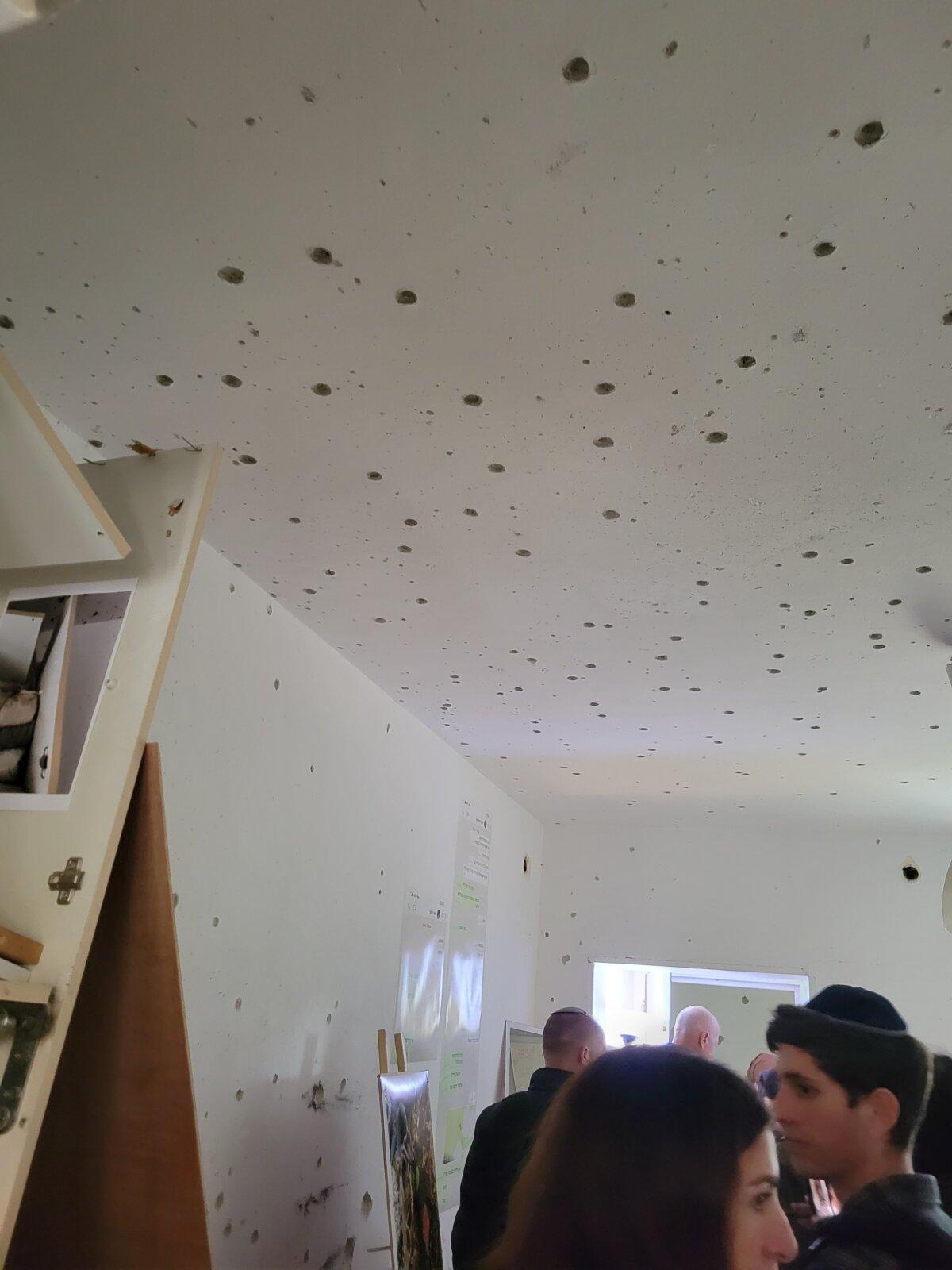
Beyond the shock and pain, Israelis feel betrayal, she said.
Kfar Aza was mapped out for its attackers by a Palestinian man who had worked there as a maintenance man for 23 years, she said.
Attackers of other kibbutzes similarly had inside help from some among the thousands of Gazans who, before Oct. 7, were let into Israel each day to work.
Ms. Arogeti was one of 67 people on the tour, organized by Momentum.
For 14 years, the Jewish organization has been promoting trips to Israel. It initially focused on mothers, and its participants are usually women, but lately, they’ve run tours for men too, according to its previous president, Helen Zalik.

Momentum has taken 23,000 people to Israel during that time. Roughly a third of its $15 million budget comes from the Israeli government, another third comes from the participants themselves, and the rest comes from philanthropy, she said.
It also helps participants afterward to preserve connections made on the trip, with the land and its people, with their religion, and with those they shared the journey with.
Ms. Zalik said she was finishing her term as Momentum’s president when the Oct. 7 attack took place. The organization quickly shifted gears.
“We thought, ‘How do we galvanize our troops? We really need to mobilize our army to action,’” she said.
The trips have generally featured a different Jewish religious theme for each day, she said. The current trips now use “bearing witness” as a theme, she said. The word for it, “Hineni,” comes from the Bible; it is Moses’s response when God first calls him from the burning bush.
“That’s one of the values that we’ve identified, bearing witness,” she said.
“We take people to the site of the [Nova music] festival so they can actually see with their own eyes the atrocities that took place. And [they can] speak to the victims and former hostages.”
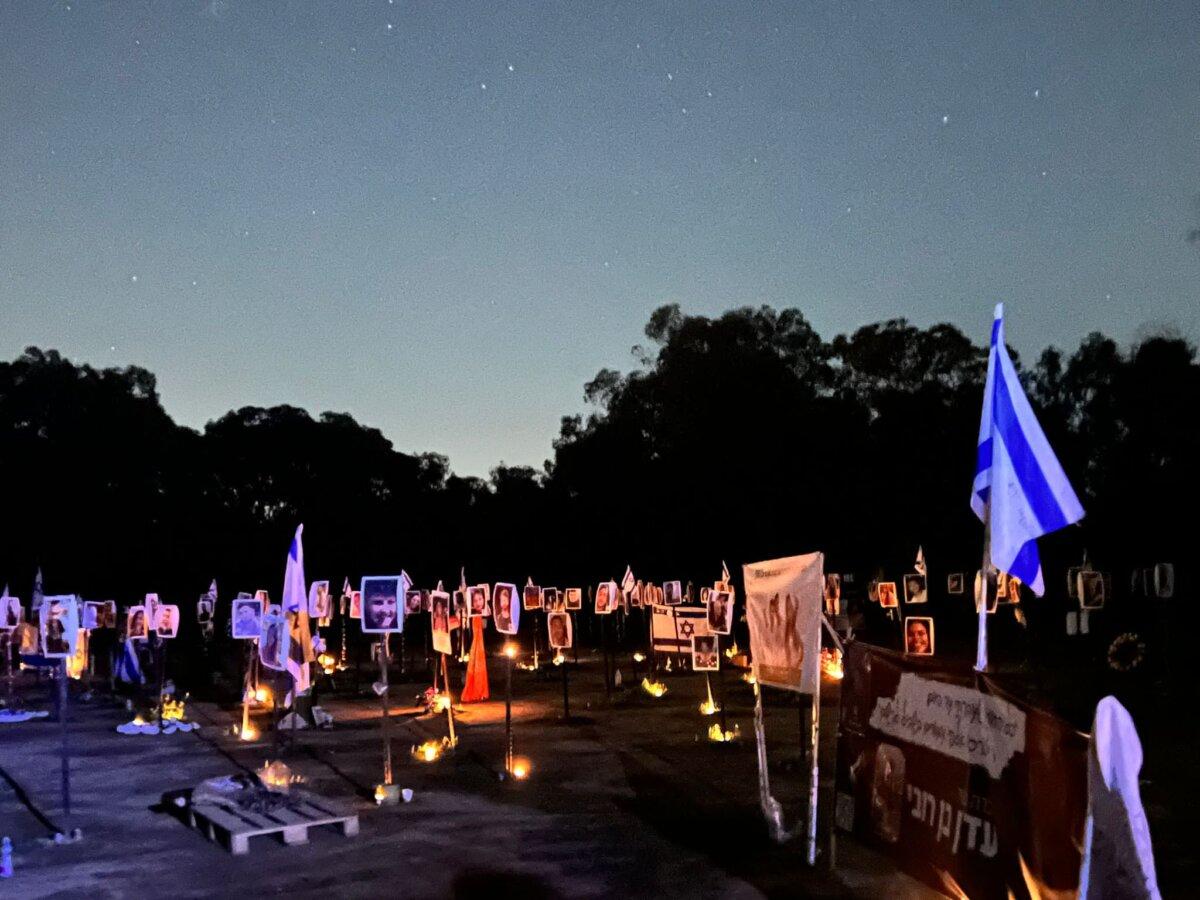
“What Israel needs right now is diaspora Jews showing up and supporting them. Just our presence alone brings a lot of comfort to the people there,” she said.
Israel’s David Ben Gurion International Airport, usually crowded with travelers, is like a ghost town now. Tourism has fallen off, and only El Al, Israel’s national airline, currently flies there. The arrival hall features a display with posters of Israelis held hostage by Hamas.
“I think, in general, they feel abandoned and alone in the world,” Ms. Zalik said. She said that everyone who travels to Israel for them does them a service just by being there. “It’s like their presence takes [away] a little bit of the pain.
“It eases their burden just a tiny little bit to know that they’re not alone. And that they have somebody else to shoulder this thing.”
Momentum began putting Israelis on the trip to give the visitors closer contact beyond passing contact with Israeli bus drivers or event speakers.
The women on the trip establish strong connections with the Israeli women who accompany them.
“You suddenly have a sister that’s gone through something horrible, and you experience this intensity together for four or five days,” she said.
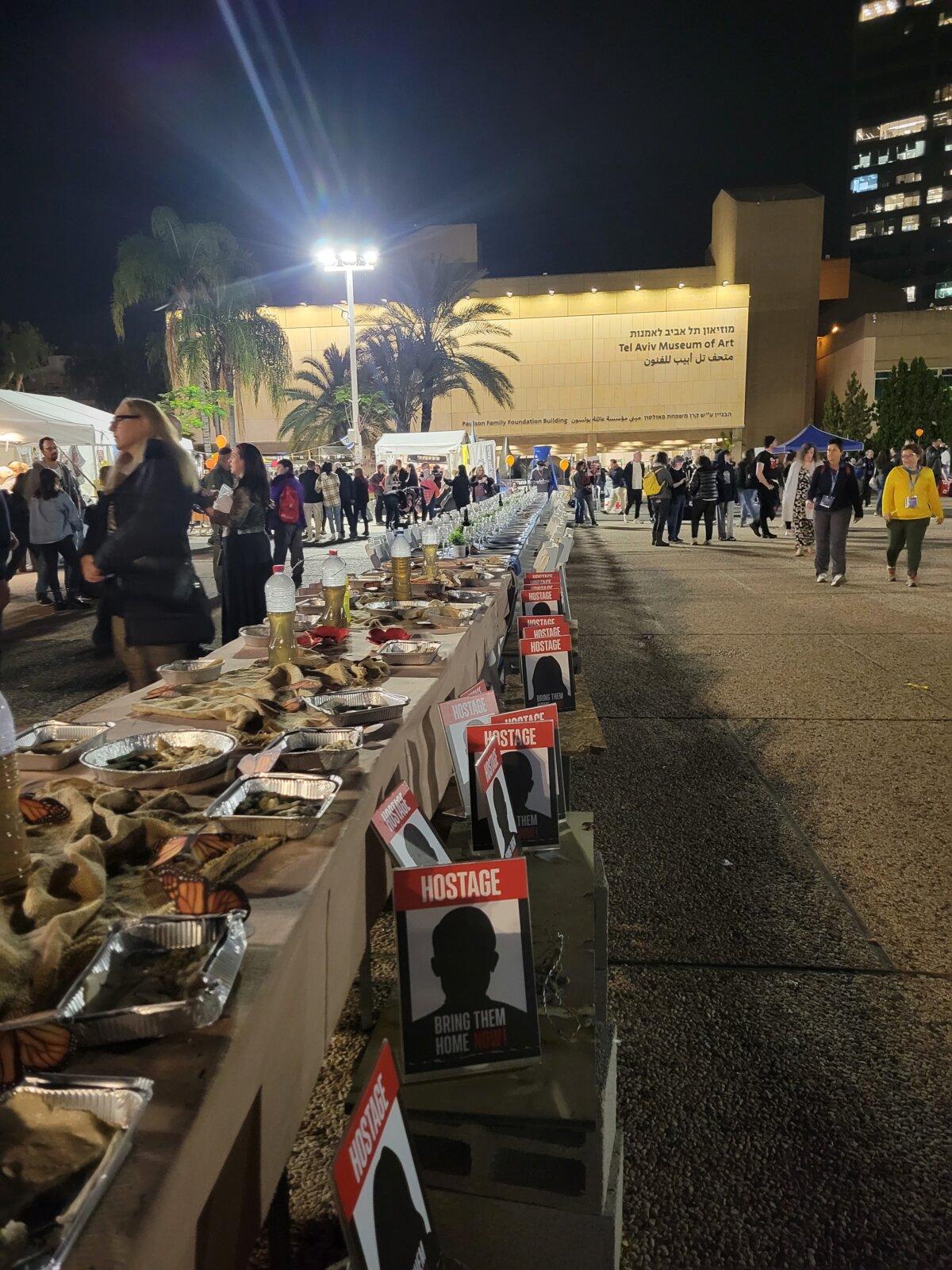
An Atlanta insurance agent who asked that he be identified by only his first name, Al, said he had applied to go on a mission with an organization that provides volunteers to the Israeli Defense Force to do mundane tasks such as checking, sorting, and packing vital medical supplies, combat meals, and ceramic vests for soldiers in the field.
“I feel that volunteering to go to Israel is my sacred duty,” Al told The Epoch Times. He’s been active in mainstream Jewish organizations such as Israel Bonds and AIPAC.
“This will be one of the most significant activities I’ve done in my life,” he said. “[Israeli] soldiers need to know that American Jewry is with them. Upon returning, I will be delivering the message that we all need to make an impact.”
“Israelis are, I can’t even tell you, so buoyed by the fact that Jews are showing up, even in wartime,” Lori Palatnik, Momentum’s founding director and one of the leaders of the January trip, told The Epoch Times.
Momentum has been labeling these trips as “Unity” missions, emphasizing unity among mission participants from different backgrounds and unity in a country that was deeply divided politically before Oct. 7 but has been brought together by the war.
Mrs. Palatnik said she’s led “many” Momentum trips since 2009.
Participants have come from 36 countries, and Momentum has cooperated with more than 400 organizations to make them happen, Mrs. Palatnik said.
The group was formed to help Jewish women strengthen often-shaky connections with Judaism and Israel.
Trip alumnae have shown that it works since Oct. 7, with thousands of them coming forward to organize, lobby, and protest on Israel’s behalf.
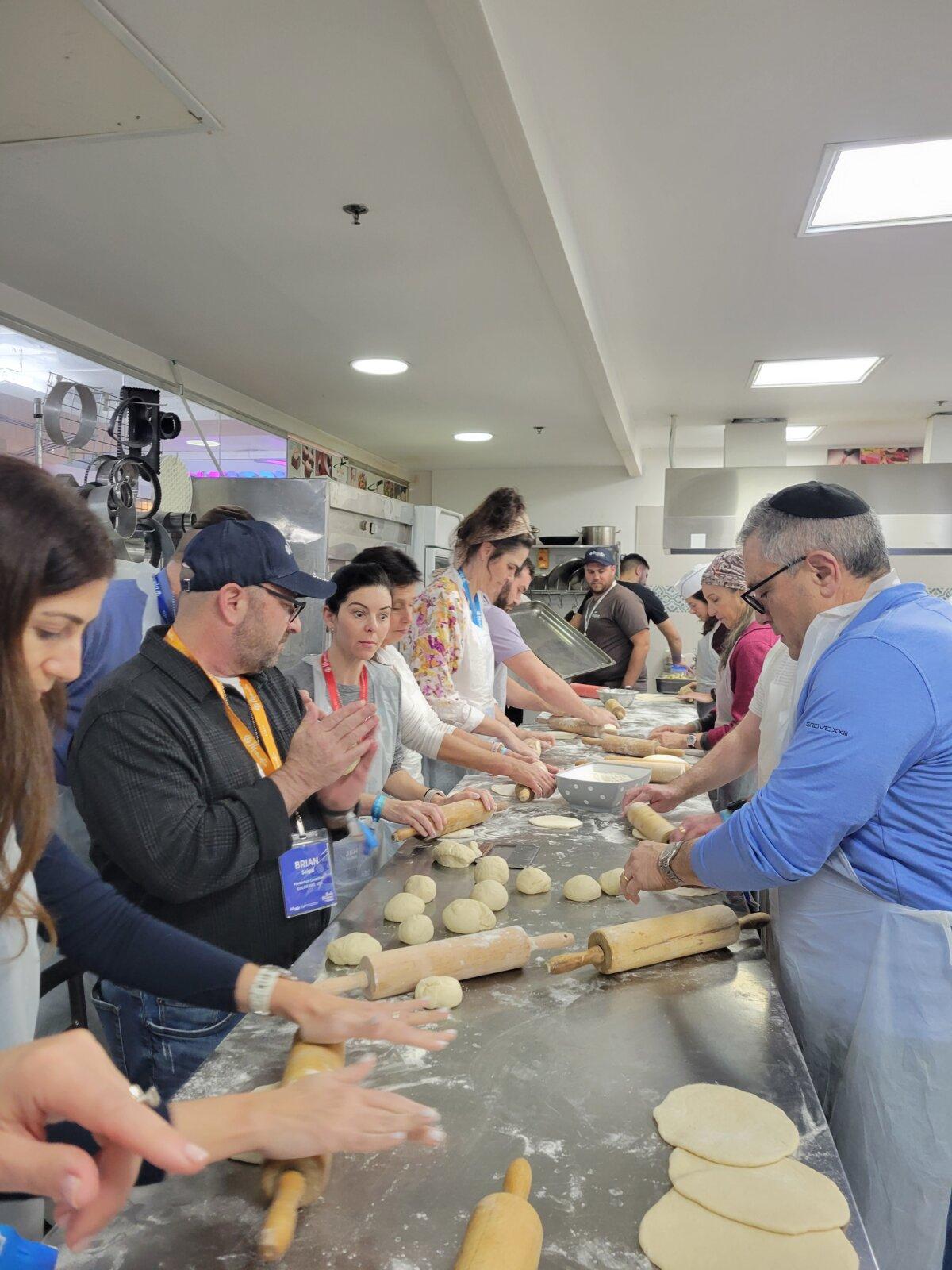
Jews in the diaspora can get along for years without thinking too much about Israel and thinking their own lives are okay.
Many were slow to recognize steadily growing dangers, as anti-Zionism and anti-Semitism took over many college campuses. They kept accepting as the new normal that Jews needed to have armed guards in synagogues and Jewish schools. Now they’re finally facing it, she said.
Israelis Jews, she said, in some ways have it easier. “You know who your friends are, and you know who your enemies are.
“And right now, Jews in the diaspora are shocked. They don’t know who their friends are. And they’re surprised who their enemies are.”
The war has provided them an opportunity to recognize that, and to come together, Mrs. Palatnik said.
“Now, the cork came off the bottle and everything came pouring out, and it’s good,” she said.
“It can be hard. It’s hard to see things that are painful. But you rather be blind? Would you rather look away?”
Cheryl Dorchinsky, executive director of the Atlanta Israel Coalition, led a trip in January. She organized it quickly, using contacts she'd made leading previous trips.
She found powerful moments in the trip each day, she said.
Sometimes, they were little things. Her group brought supplies for soldiers with them. Those included sleeping bags, but they'd only been able to get two of them.
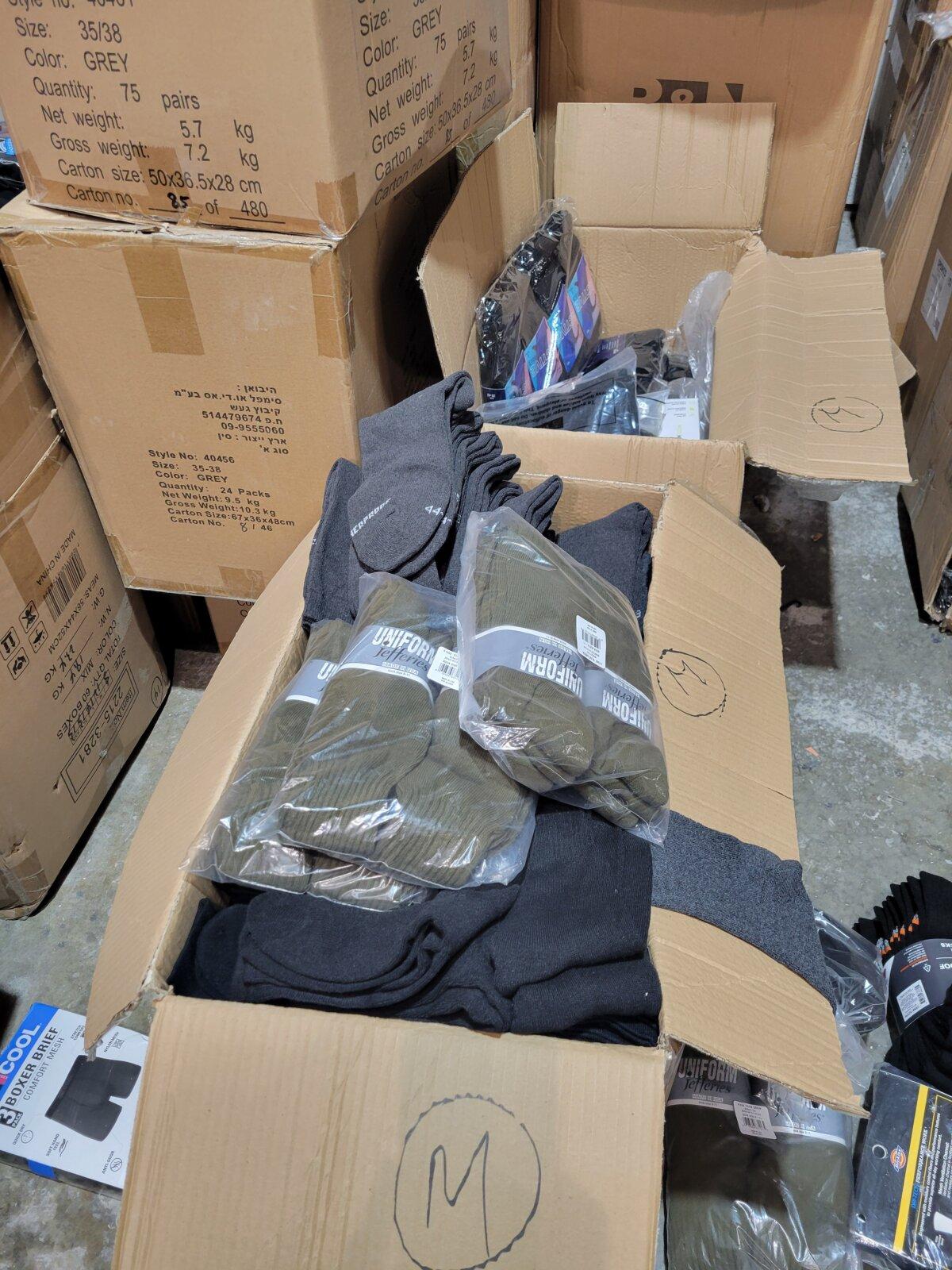
But when she dropped them off with soldiers after arriving, she found that the unit’s sleeping bag inventory had been exactly two bags short. And Ms. Dorchinsky’s group supplied those two.
She said, “What are the chances of that?”
Another such moment came when she was doing a craft project with children, attack survivors living at a hotel.
“There was a little girl, and she would only draw broken hearts,” Ms. Dorchinsky said. “And she‘d crumple up the paper, and she’d throw it on the table, and there was anger and pain on her face.”
The girl turned down the offer of a gift of a Beanie Baby. Ms. Dorchinsky coaxed her and played with her until she finally got a smile from her and the girl agreed to take one of the teddy bears.
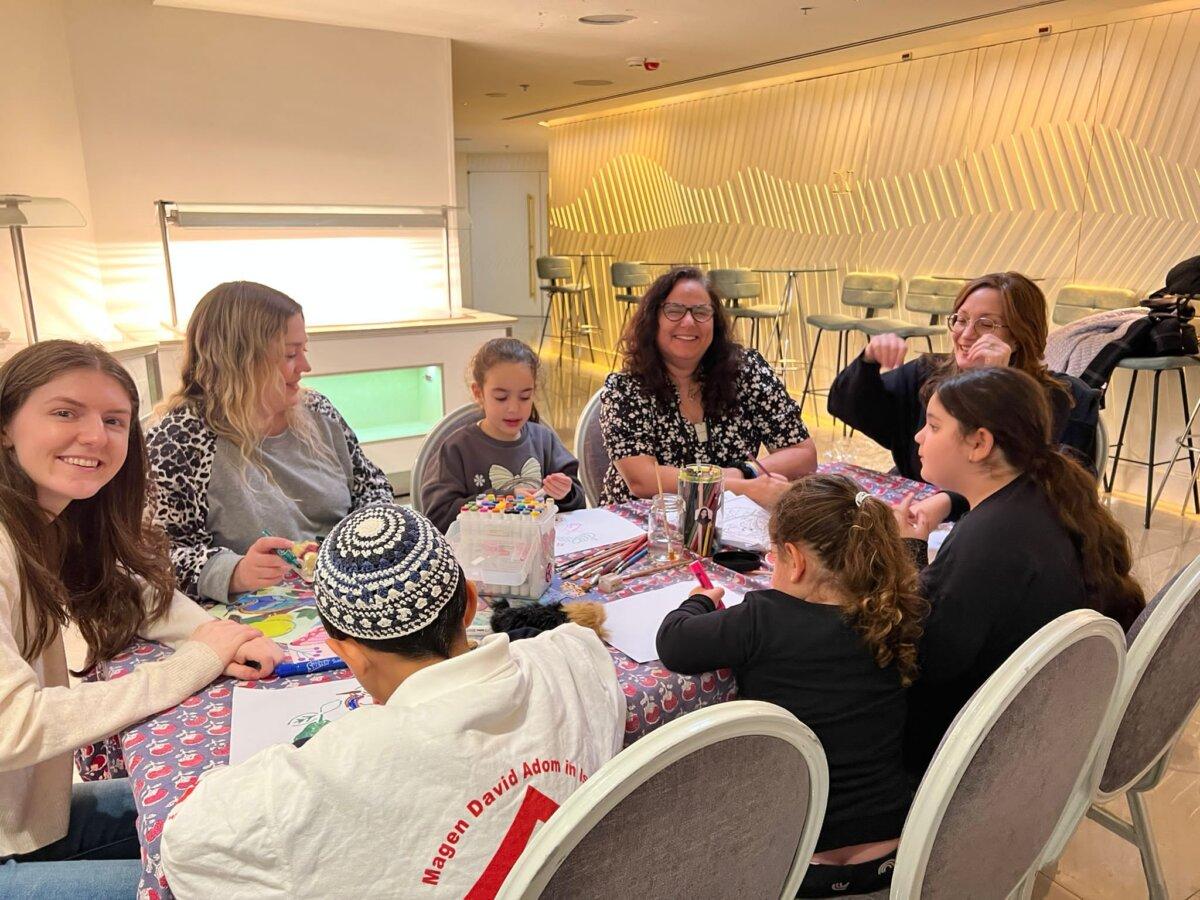
“When the time was over, she ran to me and gave me a big hug and half of one of the hearts she cut out and kept the other half,” she said. “That was very, very touching.”
A more somber moment came while the group packed food for soldiers at a vegan restaurant in Tel Aviv. It has converted entirely to the mission of feeding the army during the war, she said.
“There are actually vegans in the military. And they should be able to eat, too,” Ms. Dorchinsky said.
“So we’re sitting there. We’re packing. Putting the rice in the bowl, putting veggie meatballs into the bowl, capping it, and writing notes. ‘We love you,’ you know, different things on each container.
“And they hand us two tubs of veggie nuggets. And they say, ‘This is for the shiva for a soldier.”
“Shiva” is a period of mourning that lasts a week.
“His family’s sitting shiva, and everyone’s going to pay their respects tonight,” she said.
A soldier who was a friend of the fallen soldier picked up the food.
“And he’s tearing up, and he said, ‘We’re so grateful. This place comes through and helps so many times,’” she said.
What Israel is undergoing now, she said, “is just ordinary people doing extraordinary things.”
“Being able to support them and be there for them is nothing short of a blessing,” Ms. Dorchinsky said. “It’s easy to go to Israel during the good times. We need to be there now. During the challenging times.”
“We’re living in a historical, pivotal time,” Mrs. Palatnik said. “And just like we asked our parents, ‘Where were our grandparents during the Holocaust, what did they do?’ Welcome to our reality here.”
Jews’ children and grandchildren will one day ask them what they did in Israel’s moment of dire need, she said, and it’s time for them to stand up and be counted.
